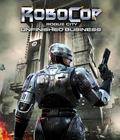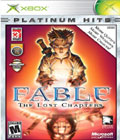Genre: RPG
Publisher: Microsoft
Developer: Lionhead Studios
Release Date: October 18, 2005
Hype can be a dangerous thing. It can promise you things that, deep down, you know will never really happen. This was the original Fable's main problem. Taken on its own, it was an enjoyable (albeit a bit brief) action RPG. If you followed the hype, though, it could be considered a letdown, as most of the more spectacular gameplay features either had to be left out or watered down. Now, a year later, Lionhead has released Fable: The Lost Chapters at a budget price, a steal for the quality of game it is.
Fable: TLC, like its predecessor, begins in the village of Oakvale. You are a young boy tasked with buying your sister a present for her birthday. Your father offers you one gold for every good deed you do, no doubt to help make sure your sister doesn't get some deformed clay coffee mug you made at camp two summers ago. However, you can scrounge up some gold in other, less-chivalrous ways, such as keeping your mouth shut about a married man's affair or smashing up a man's barrels that you're supposed to be guarding (honestly, what does he expect? Barrel and pot smashing has been in vogue since The Legend of Zelda!).
This prologue to the game introduces you to Fable's morality system. It's not too hard to wrap your head around: do good works, and your character is transformed into a glowing cherub of goodness and virtue whom butterflies flutter around (you even get a halo if you're saint-like in your good deeds). Commit evil deeds, and your hero's skin becomes scaly and pale white, horns sprout out of your forehead, and your eyes take on an unmistakably evil red glow.
After you present your sister with her present, bandits invade your town and commence with the burning and pillaging. Most everyone is killed (including your father), but you are saved by maze, a hero who works for the Hero's Guild. He whisks you off to Guild HQ and it is here you begin your training to become a hero yourself. Training at the guild gives you tutorials over the three methods of combat in the game: melee, archery, and magic (or Will, in the world of Albion) and represents your adolescence. It would've been nice if the developers had included an option to skip guild training completely, because for those returning to the world of Albion, the tutorials take a long time going over things that veterans are no doubt familiar with.
With your hero's training complete, the game truly begins. The Hero's guild will remain a central location, as it is where you pick up quest cards (of either the story-advancing variety or various side-quests) and level-up your hero. When choosing any quest, you're given the chance to boast. Boasting is just a way of showing everyone how great you are, not to mention lining your wallet with some extra gold. Think you can do the next quest without using any weapons or magic at all? Prove it. Fancy doing the quest in your birthday suit? More power to you! Boasting is a good way to increase the difficulty if you're breezing through The Lost Chapters.
The path to glory is paved with blood in the world of Albion, so combat is one of the main draws of Fable: TLC. If you choose to make your hero more melee-focused than anything else, you'll be pleased to find that the game gives you a large collection swords, axes, hammers, and the like for beating back opponents such as bandits, the undead, balverines, and the occasional stone or earth troll. The X button is the standard attack button, with successive hits being chained into combos. Land enough of these hits on a foe, and your flourish attack becomes available, which is an unblockable (although slower) strike.
If you prefer taking out foes from a distance, archery will be more your speed. The longer you hold down the X button, the farther back your hero will pull his bowstring, causing significantly more damage than if you just jammed on the button rapid-fire. The final option for combat is using Will. If you feel the need to hurl fireballs or cast lightning at your enemies, then this is for you. There are other spells that can help everyone out, too: slow time is incredibly useful in the latter portions of the game as it slows down the world around you to get in few extra melee hits or riddle your opponent's body with a few more arrows.
No matter what school of combat you partake in, keeping your combat multiplier high should be one of your priorities. Basically, for every successful attack you land, the multiplier goes up, and for every hit you take, it goes down. You'll want it nice and high because it greatly increases the amount of experience you receive for attacking and defeating enemies. This is essential for the latter parts of the game, since it requires much more experience in order to level up.
Every time you attack an enemy with one of the three schools of combat, you're awarded specific experience points (strength for melee, skill for archery, and Will for magic). Defeated enemies also drop green general experience that can be used to level up in any area. Attributes in strength can increase the size of your health bar, the amount of melee damage you inflict, and how much damage you can take. On a cosmetic level, the more you level up in strength, the more muscular your character looks. The skill area includes speed (how fast you attack in melee), accuracy (bow damage), and guile (how stealthy you are and how good you are at cutting deals with merchants. Also, guile allows you to eventually steal items from stores and use the lock pick skill, for all of you rogue-types out there). Leveling up in Will can get you a longer Will energy bar, necessary for casting spells. It's in this area that you can also choose and upgrade various spells. Spend enough experience in this area, and your hero will begin to glow with magical energy, which looks pretty darn cool.
When not out questing, visiting one of the towns in Albion can be a pretty rewarding experience. Aside from the basic buying and selling of equipment, towns allow you to interact with the townsfolk using Fable's expression system. Your hero never really talks, but he does use quite a bit of hand gestures and body language. For example, say you run into someone who's transporting crates to a shop, causing them to drop and smash their crate. You could be polite and use the apologize expression or give them the middle finger to show how sorry you are. Many expressions have to do with your alignment, so a virtuous hero won't have access to the insult or vulgar thrust command, nor will an evil hero be able to apologize or say thanks.
How the residents of a town react to you has to do with several factors. Your alignment, of course, comes into play as does your renown, which is a measure of how well known you are (you receive renown for completing quests and showing off trophies you earned during these quests). How you dress plays a part as well, as clothes can increase or decrease your attractiveness and scariness. People will be less apt to approach you if you're sporting your assassin suit as opposed to your bright plate mail, for instance.
Every one of the towns has a marital home that you can buy and live in or rent out. However, nobody will marry you without having one. Yes, if one of the town's women (or men, if you prefer) catches your eye, you can flirt with them, give them gifts, and eventually marry them. Keep your wife happy, and she may occasionally give you gifts. Ignore her and treat her harshly, though, and she'll divorce you, which causes your alignment to shift greatly towards evil.
The Lost Chapters adds more content to Fable than it originally had. There are a few new spells, new sets of armor and clothes, some new hats, and a few new side quests. The brunt of the new content comes after the conclusion of the original game's storyline. Without giving too much away, your new task has you visiting the frigid Northern Wastes to deal with creatures called Summoners. The new content is a welcome addition, as it adds more hours of gameplay and has you interacting more with characters that had just brief cameos in the original Fable.
Graphics in The Lost Chapters haven't changed much since Fable was released a year ago. That's not to say they don't look good, though. Character models, particularly those for your hero and the other main characters, are nicely detailed, with townspeople and merchants only slightly less so. Environments run the gamut from serene woodland areas to dark, dangerous swamp marshes to the snow-caked areas of the Hook Coast and Northern Waste. The game still employs a day and night system, and the game looks particularly good during the time right before darkness hits as the sun slowly sets, basking the world of Albion in a warm, orange glow.
Danny Elfman composed the game's main theme, and it along with the rest of the music in Fable: The Lost Chapters is very good at giving the game more of an epic and adventurous feel. The voice acting is fine as well, thanks in no small part to the sometimes-hilarious writing. Sound effects such as swords clanging, lightning bolts, and the snarl of balverines is good, but they sound a bit muted no matter how high you turn up the volume.
Fable: The Lost Chapters is an improvement on an already great game. While Fable veterans will likely be able to speed through the original content to get to the new stuff with a weekend rental, newcomers should definitely buy it. It'll only cost you $20 and what you get is a game that is anything but a throwaway budget title.
Score: 8.3/10
More articles about Fable: The Lost Chapters











 Fable: The Lost Chapters is now fully optimized for the Windows platform, complete with expanded content, greater customization, new quests and enhanced graphics. In this groundbreaking role-playing adventure game from Lionhead Studios, every action determines a character's skills, appearance and morality. A character's life story is created from childhood through adulthood and on to old age. One can grow from an inexperienced child into the most powerful being in the world, spoken of by all and immortalized in legend. As additional story and side quests await, so too does the path of righteousness, as well as the life of evil. With every choice, a character transforms into a reflection of his actions and decisions. Age leaves characters wizened and battle leaves characters scarred in the world of Fable: The Lost Chapters.
Fable: The Lost Chapters is now fully optimized for the Windows platform, complete with expanded content, greater customization, new quests and enhanced graphics. In this groundbreaking role-playing adventure game from Lionhead Studios, every action determines a character's skills, appearance and morality. A character's life story is created from childhood through adulthood and on to old age. One can grow from an inexperienced child into the most powerful being in the world, spoken of by all and immortalized in legend. As additional story and side quests await, so too does the path of righteousness, as well as the life of evil. With every choice, a character transforms into a reflection of his actions and decisions. Age leaves characters wizened and battle leaves characters scarred in the world of Fable: The Lost Chapters.

















































